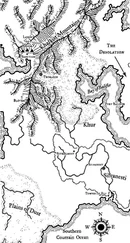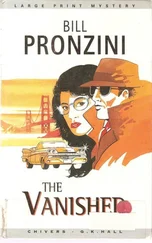Now they were the only ones left in the apartment.
The approach to the flat had been in near darkness – the lights in the hallways out, the ones at the entrance too; broken, vandalized – and Healy stood by himself in the bedroom looking at the bed. Forensics had taken the hair from the pillow, fibres from the sheets and trace evidence from the floor, and finally the flat had a strange kind of silence to it. The faint creaks and groans of the walls and floorboards, the drip of rain on the windowsill, but nothing else.
Healy stepped away from the bed, turned and took in the room. There was no sign of a break-in, which meant – just like Wilky and Evans before him – Symons knew who the Snatcher was. He’d invited him in, maybe innocently, maybe not-so-innocently, but he would have had no idea who he really was, and no sense of what was to come. From there, the case became guesswork. When did the Snatcher strike? How did he suppress his victims? How did he get them out without being seen? Where did he take them? What did he do with them? The press – ravenous, pumped-up and baying for blood – referred to him as a serial killer, but you were only a serial killer if you killed people. All the police had so far were three missing men, all tied together by a single piece of evidence: the hair from their heads, left on their pillows.
For a moment, sudden and uncontrolled panic hit Healy. What if you can’t find him? What if you haven’t got it in you any more? What if this one breaks you like the one before? He took another step back and reached out to the nearest wall, his mind turning over and over like a trawler being rolled across the waves.
He remembered Leanne, his daughter; the way she’d looked when he’d found her body, and the road he’d had to walk to get there. And then he remembered the case before that. The one that had ripped his life, and his marriage, apart: two eight-year-old girls raped and killed down in New Cross, and he’d never been able to find the bastard who did it. It had consumed him, completely and utterly suffocated him, until one day it all came out: he discovered his wife was having an affair and he flipped. In a moment of weakness, a moment that was filled with so much shame and regret he could hardly bear the weight of it, he hit his wife.
Don’t let them see you like this. Don’t show any weakness .
He stepped away from the wall, breathed in and moved to the window in the bedroom. It looked down across the rain-soaked front entrance of the tower block. In a patch of darkness out towards the main road, he could see flashbulbs going off, and cones of light where TV reporters were broadcasting live. Off to the left, where a thin walkway connected this building with the next, people watched, gloved hands on the railing, breath forming above their heads like balls of gauze.
‘You all right?’
He looked around. DCI Melanie Craw was standing in the doorway of the room, head tilted, eyes analysing him. She’d given him his chance, made an unpopular decision, and for that he owed her. But she still looked at him like all the others did: waiting for the moment he said something or did something stupid; the moment he screwed it all up. And sometimes her gaze was even more intense than that: sometimes it felt she was looking right into his head, reading his every thought, and he became worried that she’d figured out what he was doing at the prison.
‘There’s no sign of forced entry anywhere?’ Healy asked.
Craw stepped into the bedroom. ‘No. Symons is just like Wilky and Evans. Our suspect is definitely invited in. Most likely he follows them, gets to know their routines, then initiates a meeting and gains their trust.’
‘And when he gets inside the flats, he drugs them.’
‘That seems the most likely course of action, yes.’
‘Because how else does he shave their heads, right?’
‘Right.’
‘But what about once they’re drugged?’
She looked at him, seeing that he had a theory. ‘He leaves with them.’
‘But there have been no witnesses at any of the scenes. So, how do you carry a grown man like Symons out of a fourth-floor flat without raising any suspicion?’
Craw shrugged. ‘You wait for the right moment.’
‘Or you don’t knock them out.’
She stepped closer, frowning. ‘What do you mean?’
‘I agree that he drugs them,’ Healy replied. ‘It makes them much easier to control that way. There’s no way they would allow him to shave their heads otherwise. But I don’t think they’re unconscious while he’s doing it. In fact, I don’t think they’re unconscious at any point. Wilky, Evans, Symons – I think he gave them enough so they were malleable – and then I think he walked them right out the front door. And he’ll do exactly the same to the next one.’
Date Night
It had been a long time. As Jonathan Drake waited in his flat, perched on the arm of a sofa, the TV on in the background, he tried to remember how long. Maybe a year. Maybe more. You lost track after a while.
He didn’t mind dating, he didn’t mind meeting new people, but he hated the build-up. He hated the early stages, the moments where you initiated conversation in the hope they wouldn’t automatically turn you down, and then the weeks after, where everything was about making an impression, about saying the right things at the right times. None of it came easily to him. He wasn’t asocial – quite the opposite, in fact – but the process was never one he’d been 100 per cent comfortable with, ever since he was a teenager. Chatting people up in nightclubs, at bars, at house parties, it all just felt so false. Because of that, for a long time he couldn’t be bothered with it. He didn’t want the embarrassment. He spent months actively avoiding dating and, after a time, became very comfortable with his decision. He even grew to quite like it. He could go out with friends, with the people he worked with, and not feel under any pressure. He watched everyone else ride the tidal wave of men and women, in clubs, in bars, and it gave him a great perspective on how empty and unsatisfying that lifestyle was. But eventually, everyone – even those for whom detachment becomes second nature – starts to feel the ache of loneliness. And a year later, he realized something: humans weren’t meant to be alone. They needed company .
So here he was .
He’d met this one by chance, while walking home, and they’d continued chatting on their daily commute. Drake preferred it that way. When you met someone unexpectedly, you sidestepped the really inelegant moments, the uncomfortable ‘Do you come here often?’-style conversation, because you weren’t expecting anything to happen. And then it was easier to move to the next stage: where both of you liked the look of each other, and you gradually started to develop some kind of bond. He was nervous, but he was excited too about what the evening had in store for them .
Getting to his feet, he padded back through to the bedroom and looked at himself in the mirror. He was five-eight, slight, not handsome exactly – he knew that much – but rugged and dark. He had tiny pockmarks in and around the slope of his nose, running in an arc at either cheekbone, but it was the only part of him he disliked .
He turned and looked around at his flat .
Thin, worn carpets, faded wallpaper, damp in the corners of the room. Off to the right, in the kitchen, he could see a watermark had stained the cream linoleum. There were no pictures anywhere. No plants. No decor of any kind apart from a bookshelf full of books, and a TV perched on top of a wheeled cabinet. He’d have liked a better flat, but he was pretty philosophical about it: the rent was cheap, and there was no one else to help pay it. Until he got a promotion at the store, or won the lottery, this would do fine.
Читать дальше












